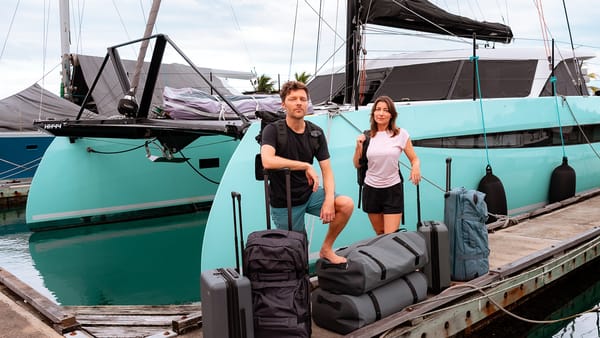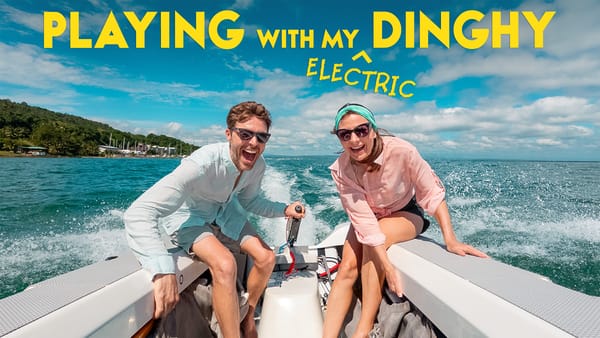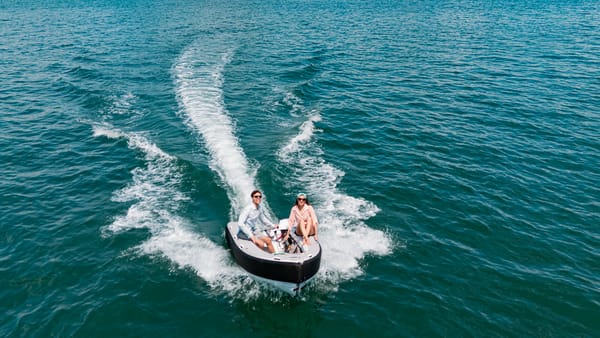RV Tow Car – Do You Really Need One?
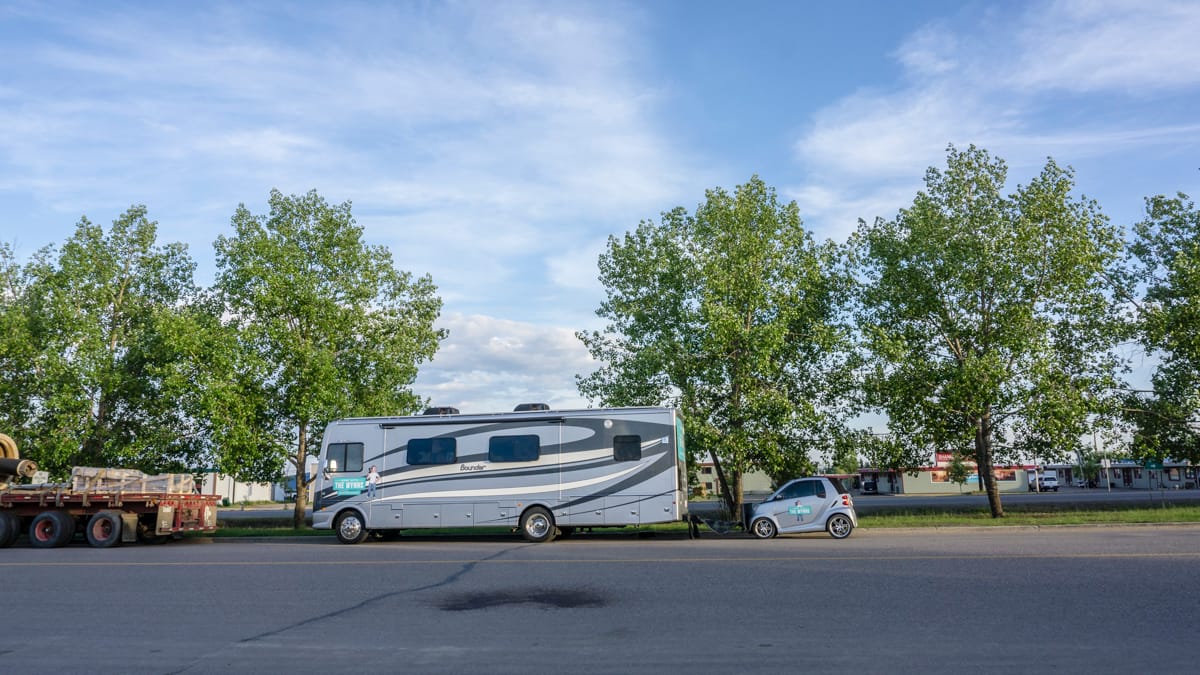
We get a lot of new RV’er questions but one we get nearly every time is “Do I really need a tow car for my Motorhome?”. Like most everything else related to this unique style of travel: there is no one-size-fits-all answer…so, we’ve gathered our thoughts and put together this casual video for anyone having the great “to tow or not to tow” debate:
Still unsure? Here are 10 things we’ve learned about tow cars over the past several years of full-time RVing:
- Choose a tow car to fit your needs. If you want to go off-roading make sure you have 4 wheel drive. If you want your friends/family to visit, tow a 4 door (my poor mom always has to rent a car when she visits). If you’re 2 people who love the driving experience tow a convertible (we have a little too much fun with ours)! There are plenty of towable cars, SUV’s and trucks out there so don’t settle for something that doesn’t fit your adventurous spirit.
- Make sure your car is flat towable. Confirm with your vehicle manufacturer that you can disengage the transmission for flat towing (all 4 wheels on the ground) behind an RV. Also confirm that towing the car will not void your warranty. If other people say they flat tow a model of car, but the manufacturer does not recommend it, I say trust the manufacturer. You can find a list of approved flat towable cars online (try searching “RV Dinghy Guide”), but always check with the manufacturer about your make, model, and year. (This part can be extremely confusing. For instance many people flat tow the Mini Cooper, companies make tow bars and base plates to fit the Mini, but when we called Mini they told us straight up “DO NOT FLAT TOW A MINI COOPER, even if it’s a manual transmission”).
- Purchase a non-binding tow bar. When you get in a tight spot and you need to disconnect in an emergency situation you’ll be thankful you paid that extra $$. We’ve ended up on mountainside hair pin turns that the RV couldn’t quite make, we’ve been pulled into narrow filling stations where disconnecting the car is the only option, and my favorite is when we got stuck in the sand on a sloping curve where we had to disconnect the car for scouting a wild camping site. With a non-binding towbar we’re able to disconnect the car at any angle allowing us to maneuver the RV separate from the car.
- Always install a supplemental breaking system. Not only is this safer for emergency stopping and mountain driving, it’s required by law in many states. True most law enforcement officers won’t question your braking system in the chance you get pulled over, but why risk it? Also your insurance company might be able to ‘weasel’ out of a claim because you’re not following the laws in your state.
- Install a Tire Pressure monitoring system. Companies such as Tire Minder offer “low cost” wireless solutions that monitor your RV tire pressure and your tow car tire pressure. I cannot stress how important it is to know immediately when there is a leak in a tire or a rapid heat spike in the tire temperature (meaning you’re about to lose your brakes) while driving in an RV.
- Install a Rearview Camera. I think it’s extremely important to monitor the tow car while driving. This will allow you to see if anything happens to the car while in tow (like a tire flying off, or the car coming disconnected, or sparks flying up behind the wheels…)
- Optional Accessories. Install the proper lighting kit so your tow vehicle lights work with the RV’s lights. Use appropriate safety cables and install a brake away kit to ensure maximum safety while towing your car. If your car requires a battery disconnect make sure you install one to safeguard your battery. Purchase a dual hitch receiver so you can tow the car and carry a bicycle rack (or get folding bikes). It boggles me how some people cheap out on this part, small accessories make the process more simple and these options often are insignificant in price compared to the expense of the towing setup.
- Don’t back up. The car’s front wheels may “cramp” to the left or right and damage the car’s alignment or worse, the entire steering system. Don’t ever backup with a tow car attached when you’re flat towing. (You can sure try, but I don’t recommend it at all.)
- Dolly or Trailer can be a hassle. We chose a towbar for our travels so I’m a little biased, but from our research and talking with others who’ve used trailers here’s our take: a) Many campsites aren’t large enough to fit an RV, a trailer, and a vehicle. b) If you’re stuck in a tight situation (like hanging over the edge of a cliff in a hairpin turn, yes this really happened to us) you can’t disconnect a trailer and drive it off to safety, you’re stuck trying to backup and correct the situation. Should you decide to go the trailer route make sure your RV tow rating and the tongue load fall within your RV manufacturers specifications.
- Better RV MPG. Driving a tow car gives us better fuel economy for short trips from our base camp and easier access to last minute pull-out stops while exploring a new city or park. We combine our RV and our Smart Car MPG to give us our average RV Travel fuel economy, this makes the RV MPG seem a lot better at the end of the day!
A friendly tip – Other terms used for “tow car” are: Dinghy and Toad. So when you hear people referring to these names you won’t have to respond with “huh?”
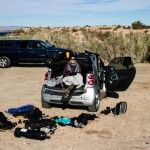
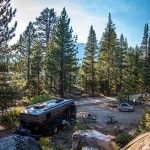





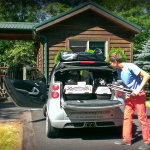


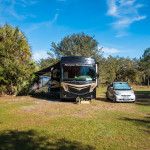
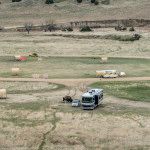
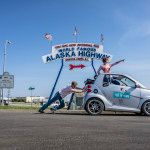

For us, pulling a tow car behind the RV is the best way to explore the surrounding area once our RV Basecamp is setup. Unless you have a small RV it’s a pain to disconnect from the campsite (water, electric, bring in slides, put away dishes, etc) just to run an errand. What could be even worse is trying to drive a big RV through a national park with size restrictions, narrow roads and winding, mountainous terrain. We can’t imagine traveling without a tow car and if you ask us we’ll tell you that flat towing our Smart Car as a Dinghy these past years has been a lifesaver…a hundred times over.
As mentioned in the video, our friends Jen and Deas of Nealys on Wheels tried going without a tow car their first year of RV’ing and quickly decided that needed to change. So, its not the end of the world should you decide to try it out sans toad at first.
You may not need/want a tow car if:
- You take short trips (2 weeks or less) where you rarely leave the campground.
- You are pulling a fifth wheel or trailer camper.
- Your RV is underpowered, over GVWR rating, or not rated with any towing capacity.
- You have a small (around 25ft) class B or C and you want to travel inconspicuously and stealth camp.
Share your two cents about RV Tow Cars in the comments below and help out your fellow travelers! Not only is it fun for us to read it may just convince others who are on the fence 🙂
You can find our tow bar and accessories in our Shop under the Tow Car tab and if you want to see how to and not to tow a car, we have videos on that too.


